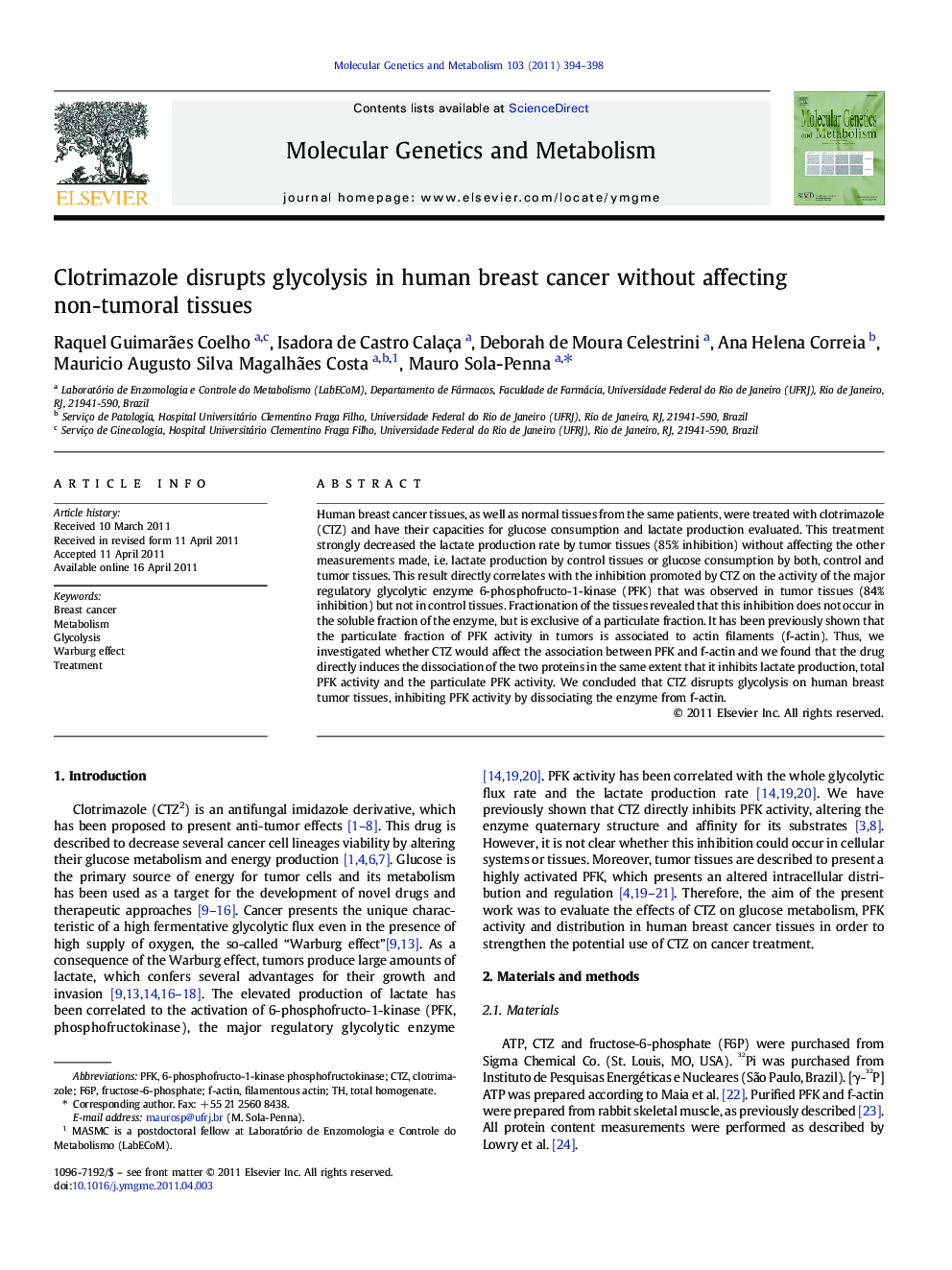| Article ID | Journal | Published Year | Pages | File Type |
|---|---|---|---|---|
| 1999091 | Molecular Genetics and Metabolism | 2011 | 5 Pages |
Human breast cancer tissues, as well as normal tissues from the same patients, were treated with clotrimazole (CTZ) and have their capacities for glucose consumption and lactate production evaluated. This treatment strongly decreased the lactate production rate by tumor tissues (85% inhibition) without affecting the other measurements made, i.e. lactate production by control tissues or glucose consumption by both, control and tumor tissues. This result directly correlates with the inhibition promoted by CTZ on the activity of the major regulatory glycolytic enzyme 6-phosphofructo-1-kinase (PFK) that was observed in tumor tissues (84% inhibition) but not in control tissues. Fractionation of the tissues revealed that this inhibition does not occur in the soluble fraction of the enzyme, but is exclusive of a particulate fraction. It has been previously shown that the particulate fraction of PFK activity in tumors is associated to actin filaments (f-actin). Thus, we investigated whether CTZ would affect the association between PFK and f-actin and we found that the drug directly induces the dissociation of the two proteins in the same extent that it inhibits lactate production, total PFK activity and the particulate PFK activity. We concluded that CTZ disrupts glycolysis on human breast tumor tissues, inhibiting PFK activity by dissociating the enzyme from f-actin.
